A lot of my favourite sunscreens aren’t the most budget-friendly.
Unfortunately sunscreen testing and development is pretty expensive, and if you want to formulate an SPF product that’s really pleasant to use as well as being effective, it can be a long expensive process of trial and error.
Enter: economy of scale.
We have two major supermarkets in Australia: Coles and Woolworths.
They’re pretty much a duopoly and there’s some intense competition when it comes to prices. Their supply chains are really optimised, the volumes they sell are massive, and they’re known to sell things below cost price to get people into stores.
That, combined with the fact that sunscreen is sort of part of our culture (every Australian kid in the 90s grew up with Slip Slop Slap slogans), means we have some really cheap sunscreens.
We’re talking $2.25 for a 100 mL tube (because of course their prices match), which means $0.85 USD for a tube the size of Biore Watery Essence.
And if you get the 1 L pump for $8.50, it works out to be $0.425 AUD or $0.30 USD for a Biore Watery Essence tube.
There’s also Aldi, and as per their usual MO they’ve undercut both by offering their 100 mL tubes for $2.19.
It does feel a bit like you can’t trust something this cheap.
But at the same time, these are from the largest supermarkets here, so I had to try them out. And I was pleasantly surprised!
Related Post: US Sunscreens Aren’t Safe in the EU? The Science
Body versus Face sunscreens
These aren’t specifically face sunscreens, so I wasn’t really expecting much.
There’s no reason you can’t use body sunscreens on your face, but much like 2-in-1 conditioning shampoos, you generally have a better time if it’s tailored for a specific purpose.
One big difference between face and body sunscreens is the feel. Sunscreens are pretty heavy by default.
The active ingredients are generally oils, or substances that need to be dissolved or suspended in oils, so usually there’s a lot of oil involved.
There are ways to get around the heaviness. Some more expensive ingredients can be used to lighten the feel, but brands usually don’t bother with these for body sunscreens since people don’t mind heavy body products as much.
It also keeps the sticker shock down, since body products come in a larger volume.
The other main difference between face and body products is the way they spread on skin.
Face products usually use ingredients that don’t spread out as easily, while body products have a longer spreading formula so you can cover more surface area in a shorter amount of time. Usually it’s the oils used in the formula that change the spread.
Related Post: Do I Need a Special Cleanser to Remove Sunscreen?
We usually don’t notice this difference because when it’s done right, it isn’t noticeable. But if you’ve ever used a rejected face moisturiser on your legs, for example, you might notice that it doesn’t spread as far as you expect.
Or you might notice that a body lotion seems to slide around too much on your face, and doesn’t sink in properly.
Coles Ultra Sunscreen
Coles Ultra Sunscreen SPF 50+ is the sunscreen they sell in the most pack sizes (100 mL, 200 mL, 500 mL, 1 L). The 100 mL version comes in a tube, while the larger ones come with pumps.
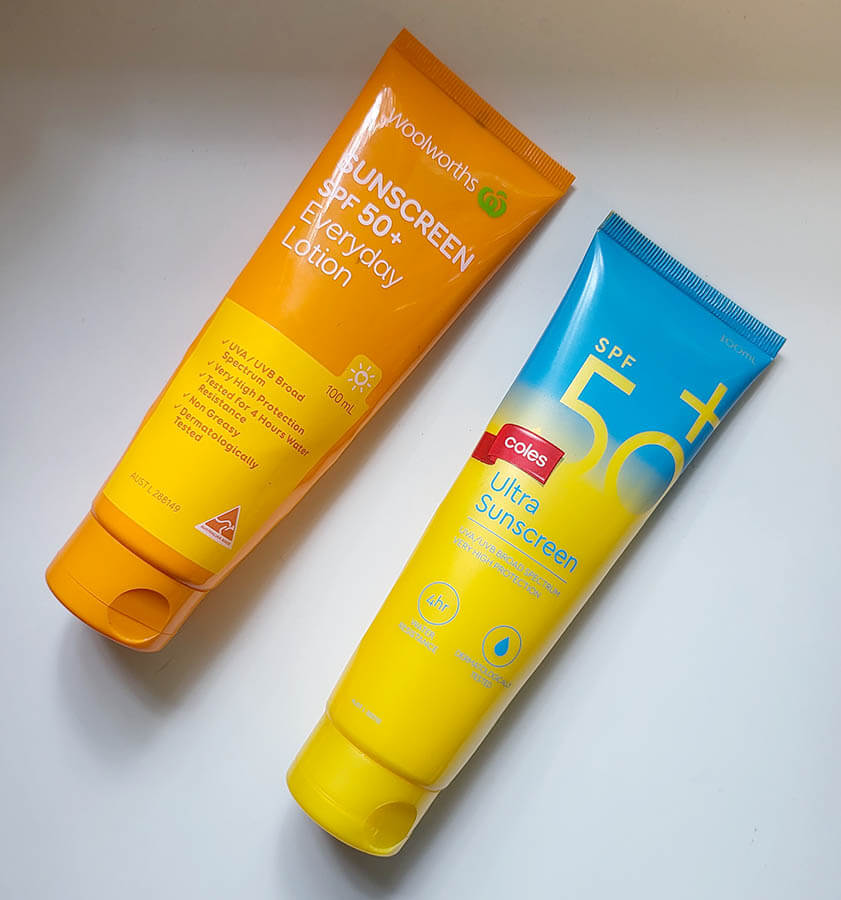
The sunscreen actives in this are really basic. They’re old school filters that are all approved in the US. This has the highest SPF rating allowed in Australia, and is 4 hours water resistant.
The thing that surprised me most was the texture. It was actually very nice, much nicer than a lot of more expensive sunscreens I’ve tried!
It’s a lotion that goes on white but dries clear if you wait. It does slide around a little, but it wasn’t unmanageable. It dries down to be quite moisturising and shiny, with a very thin, slightly greasy film on top.
But it didn’t pill under my makeup, and if you apply some powder on top (I use a starch-based powder, like Jurlique or Innisfree) the shine goes away.
Related Post: You can mix foundation with sunscreen… sometimes
It’s still not as nice as my favourite sunscreens, but I’d rate this only a touch below the Bondi Sands Lotion, which is considered incredible in the US and the UK.
Active ingredients: Avobenzone 4%, Homosalate 10%, Octocrylene 8%, Octisalate 5%
Excipients: Acrylates/C10-30 Alkyl Acrylate Crosspolymer, Alkyl (C12-15) Benzoate, Aloe Vera, Caprylyl Glycol, Carbomer 941, Citric Acid, DL-alpha-Tocopheryl Acetate, Fragrance (Perfume), Glycerol, Octanohydroxamic Acid, PEG-15 Cocamine, PEG-40 Stearate, Purified Water, Silicon Dioxide, Trolamine, White Beeswax
Woolworths Everyday Sunscreen
Woolworths Everyday Sunscreen SPF 50+ is incredibly similar to the Coles sunscreen, although it was registered first. It has the same active ingredients, at the same percentages, and is produced by the same lab that makes the Coles sunscreen.
But surprisingly, the inactive ingredients are a bit different, and the final product feels quite different. This is a bit more solid coming out of the tube, and seems to apply a little more easily. Other than that, everything else is pretty much the same.
Active ingredients: Avobenzone 4%, Homosalate 10%, Octocrylene 8%, Octisalate 5%
Excipients: Acrylates/C10-30 Alkyl Acrylate Crosspolymer, Alkyl (C12-15) Benzoate, Aloe Vera, Caprylyl Glycol, Carbomer 941, Citric Acid, DL-alpha-Tocopheryl Acetate, Fragrance (Perfume), Glycerol, Octanohydroxamic Acid, PEG-15 Cocamine, PEG-40 Stearate, Purified Water, Silicon Dioxide, Trolamine, White Beeswax
Aldi sunscreens
Aldi have three equally cheap sunscreens in their range: Ultra, Everyday and Sensitive. They’re all SPF 50+ and 4 hours water resistant, and they’re all $2.19 for a 100 mL tube.
Aldi have a habit of copying other brands, so I don’t think the names Ultra and Everyday are a coincidence.
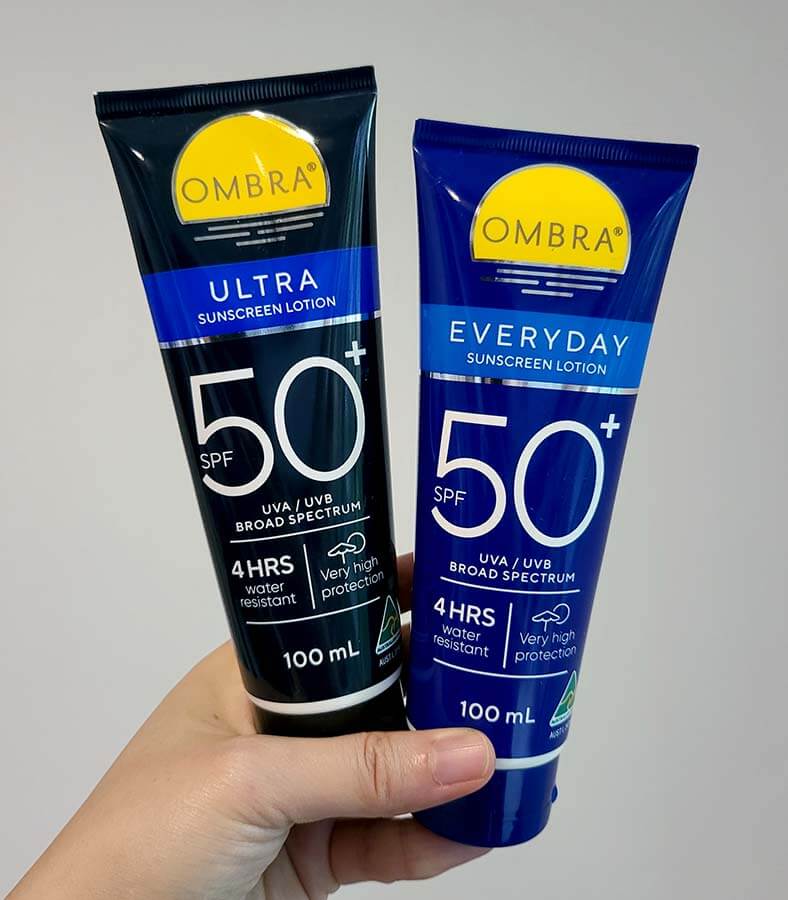
On my skin, Everyday is virtually identical in feel and texture to the Woolworths Everyday Sunscreen, although they have quite different ingredient lists, for both the active and inactive ingredients. It’s still a pretty good dupe.
Ultra feels very similar but is perhaps a little less shiny. It applied a bit whiter on my skin at first, but the white faded away to transparent after a few minutes.
Interestingly both of these Aldi sunscreens contain oxybenzone, which has become a lot harder to find in Australia.
Oxybenzone is safe in sunscreens, but it’s the ingredient that tends to have the most health and environmental concerns (albeit overblown), so it’s understandable that most sunscreen companies have moved away from using it.
Related Post: Answering (Almost) All Your Sunscreen Questions (with video)
Overall
Because all four sunscreens were so similar, I’m going to put all of the similarities here:
- Coles Ultra Sunscreen SPF 50+
- Woolworths Everyday Sunscreen SPF 50+
- Ultra Sunscreen Lotion SPF 50+
- Everyday Sunscreen Lotion SPF 50+
All of these were surprisingly lightweight.
All left a thin shiny layer that goes away with powder.
I use a starch-based powder from Jurlique, but if you want to keep everything super budget-friendly you can probably get away with using a very light dusting of corn starch from the grocery aisle (although it might have a less fine texture, and it’s a bit more fiddly since you’ll want to transfer it into a container).
All four of these sunscreens were actually pretty good in the feel department. They don’t seem that great next to super lightweight face sunscreens, but I’ve definitely tried face sunscreens that were much heavier than these.
If you’re Australian and you’re looking for a budget sunscreen you should probably try these if you haven’t already – if one of these ends up working for you then you’re going to save a lot of money and hassle!
If not, they make great body sunscreens.
If you visit Australia I highly recommend getting one of these, and wearing it when you go do outdoor tourist things.
We have some of the strictest guidelines in the world for sunscreens, so these have a good chance of keeping you protected!
Always read the label and follow the directions for use. Limit sun exposure and use protective clothing, hats and eye wear. Reapply sunscreen regularly.
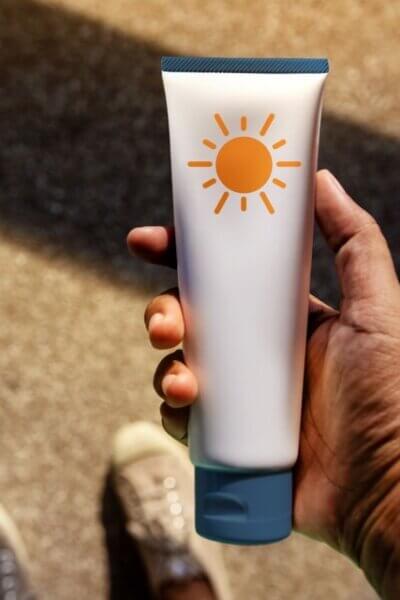
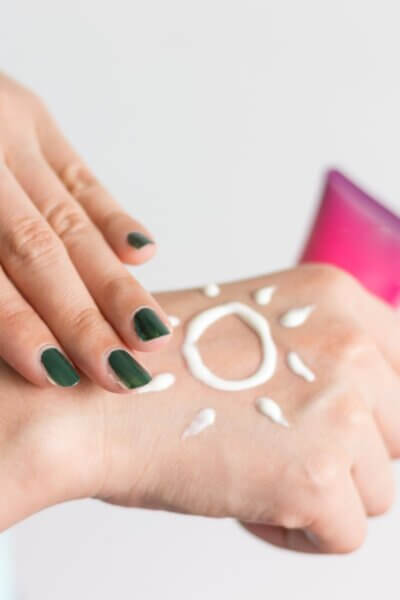
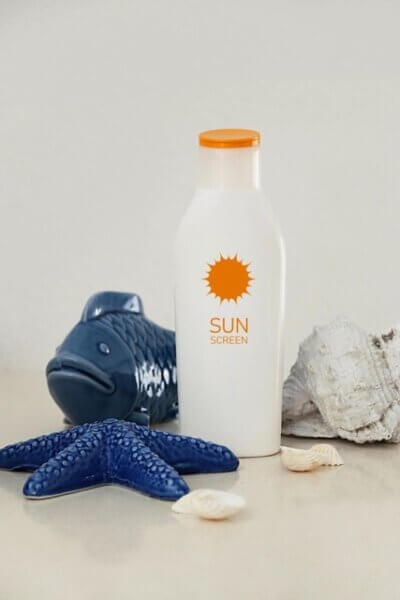
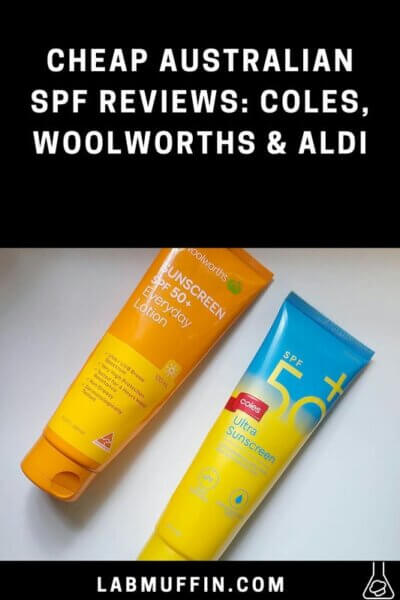


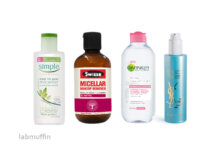
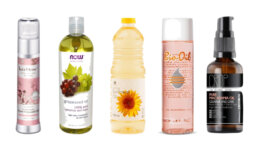
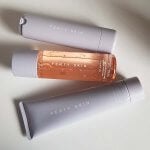

The thing that I hate about these sunscreens (besides the eye sting when swimming) is that, when mixed with some kinds of sand (sandpits, beach!), they seem to make these terrible stains on kids clothing. We’ve had to throw out some kids clothes because of permanent sunscreen stains.
Thanks for this article! I’d been hoping you’d review these supermarket brands. I love the aldi sunscreen since it’s so unbelievably cheap you definitely put enough on too. They also have a mineral based sunscreen labelled sensitive, which is a bit chalkier. And a face sunscreen which is more expensive but i didnt really see the difference from the body sunscreen. And what’s with sunscreen in Australia not labelling the inactive ingredients?? I tired to email a brand once and they refused to tell me, ha!
You can get the inactive ingredients off the TGA website – I think a lot of brands don’t show them unless necessary to try to make it harder for their competitors to copy them…
Thank you for this product breakdown. I live in the United States so I buy Biore Watery Essence and have it shipped over. My co-worker who lived in Australia for a decade during grad school gave me the heads-up that there were much better sunscreens beyond the U.S. borders. My biggest concerns, after blocking rays, is scent, lightness, and “drift”. Even Biore Watery Essence, which has the least obnoxious scent and is not heavy at all, manages to find its way into my eyes after a few hours, whether I’m walking around or sitting quietly at my desk, and it stings. Are there any sunscreens you’ve found that don’t sting?
For eyes, the most foolproof method I have is to use a sunscreen stick like Neutrogena Sheer Zinc.
I would like to know if any of the products mentioned above are cruelty free?
Depends on your definition of cruelty-free, but animal testing has been extremely rare for a long time.
I have used Aldi SPFs in the past, but only for my body. I like that they are that affordable so I could really apply thick layers back in my uni days.
Hi Michelle, does a dusting of translucent powder keep the shine away all day, or does it get shiny again alter and require touchup?
Also, I saw in your other comment that you use Neutrogena Zinc stick around your eyes – do you find it whitening on your skin? I’m looking for a mineral stick for my eyes as well but I’m brown and would prefer to avoid a white ring around my eyes!
For me it usually does, but it really depends on how oily you are.
I don’t find it whitening but you might want to find a review on darker skin!
A big downside of cheap sunscreens are their horrible smell, it tends to linger and super overwhelming
I really hope you will also include the smell description in your next reviews!
I wonder what makes the smell really bad, the scented one usually too”Beach-y”, but the unscented one also has a strong chemical smell that i couldn’t describe….
Hey Michelle. I recently found you on Insta and I’m soooooooo happy you’re sharing your wealth of knowledge with us. Thanks for this comparison- it’s not so easy to find information about Australian skincare products, so I really do appreciate your work on social media.
Quick question- Do you know where I can find information about whether the Coles or Woolies ones are vegan and/or cruelty free? I’m in the process of moving my skincare products toward Australian and cruelty free. I emailed Coles but never got a response and I can’t seem to find anything online.
I don’t think you’ll be able to get an answer from anyone but Coles, sorry!
I finally got my reply. Not vegan (contains beeswax) but not tested on animals 😊
Got a response from Coles- not vegan. Contains beeswax.
Got a response from Woolworths- does not contain animal products.
Neither company tests on animals 🙂.
Thank you for the review! Just want to ask, is it possible to ship these supermarket sunscreens to other countries? I’ve been looking for these products online but it doesn’t seem like I can find it anywhere.
Hi Michelle,
What do you think of Hamilton everyday face SPF50? It is very affordable so I wonder if this works. La roche-posay is my HG but it’s too expensive for my budget.